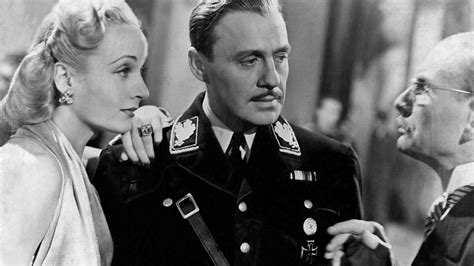Kim Jong-un, Supreme Leader of Democratic People’s Republic of Korea, however remarkable he has convinced the North Korean people he is, appears to be like most tyrants of the modern stripe. He’s an ideologically-driven, murderous, egoistic statist.
He reclines comfortably in the pantheon that includes Hitler, Stalin, Mao, Castro, and Pol Pot; and although his resume is rather short his future career will follow its predictable course. In a country such as North Korea, one day of tyranny is pretty much like the next.
That said, the recent flap over Sony Pictures’ non-release of The Interview adds some spice to the inevitable, showing North Korea’s latest tin god to be not only power mad but also humorless as well: a man petty enough to blackmail Hollywood over a second-rate comedy. In fact, what other kind of comedy does Hollywood produce nowadays?
For Hollywood to set its sights — or klieg lights — on a tyrant is nothing new. For example, the Führer in Hitler: The Last Ten Days (1973) is one of many depictions. Stalin in portrayed in Mission to Moscow (1943) and even Mao in The Chairman (1969). For Mao wannabes there is The Shoes of the Fisherman (1968) and the original Casio Royale (1967), all have had their moments of celluloid glory.
Curiously, all of these tyrants might have had the opportunity to see themselves portrayed simply because all of them were alive when the films that mocked or approved them were released. Kim, the Supreme Leader, given the same opportunity, preferred to pass, and Sony cooperated.
This moral collapse of one of Hollywood’s most powerful studios brings to mind one of the most famous examples of tyrant-as-minor-star — Ernst’s Lubitsch’s 1942 masterpiece To Be or Not to Be. Here Hitler and his slavish goons are savaged satirically from start to finish — although the “great” man himself appears for only a few seconds.
A Jew and a Berliner, Lubitsch produced barbs at the expense of the Nazis that were remarkable for their mixture of propaganda and satire. One cannot fully appreciate Lubitsch’s boldness in directing the film without considering the time just prior to its release. Pearl Harbor had not yet occurred and Americans were largely divided on the wisdom of involvement in another European war. Besides that, the claims of Nazi atrocities were taken with more skepticism the United States than we can imagine today.
Nevertheless, Lubitsch insisted on producing one of the strangest films the world had seen or has seen since, an uncompromising indictment of a totalitarian regime and its demigod in comic form starring two of the greatest comedic actors of the time, and of coming timing, Jack Benny and Carole Lombard.
With the recent Sony debacle in mind, one might wonder how Lubitsch would have responded to a Hitlerean temper tantrum over To Be or Not to Be, but one doesn’t have to. As Geoffrey O’Brien reports in his essay included in Criterion’s recent DVD of the film, Hitler hated Lubitsch, and the feeling was clearly mutual.
But Lubitsch knew that a horror as great as the Third Reich, once understood, should be revealed. His cinematic call to action realizes itself in the most unlikely opponents of statism and personality cult, a troupe of actors, mostly hams, who use their professional weapons — with a skill far beyond what their usual audiences were accustomed to see — to hoodwink the enemies of their beloved Poland.
Lubitsch was no Pole; in different times he might have scoffed at this nation that has received more than its share of ridicule from Dostoevsky to common jokes in the northeast; but he knew Poland’s enemy and that was enough. So apparently did his studio: To Be or Not to Be was released.
I would like to believe that the forces behind The Interview were similarly motivated, but my gut feeling is that they thought they had a can’t-miss comedy targeting a dictator so universally despised and easy to lampoon that they could not conceive of any other reaction than cheap laughter and a big box office haul — a far cry from what they finally got. How wonderful it would have been if they had imagined the opposite: a dictator who watched their every move and would threaten retaliation, yet could not make them budge from their call for a decent, freer world.
If you want to know how that all too rare scenario plays out, watch To Be or Not to Be, and let The Interview slip from your mind except as a sad reminder of a Hollywood that passed away long ago.














